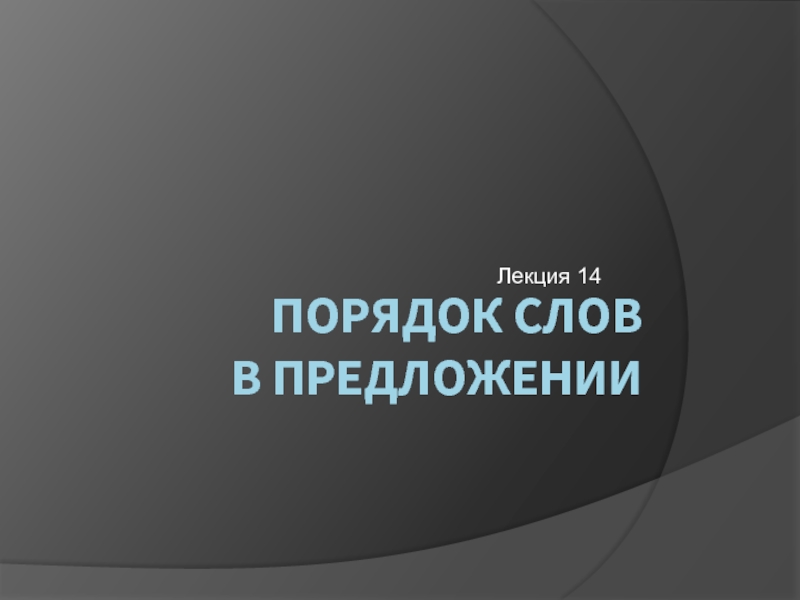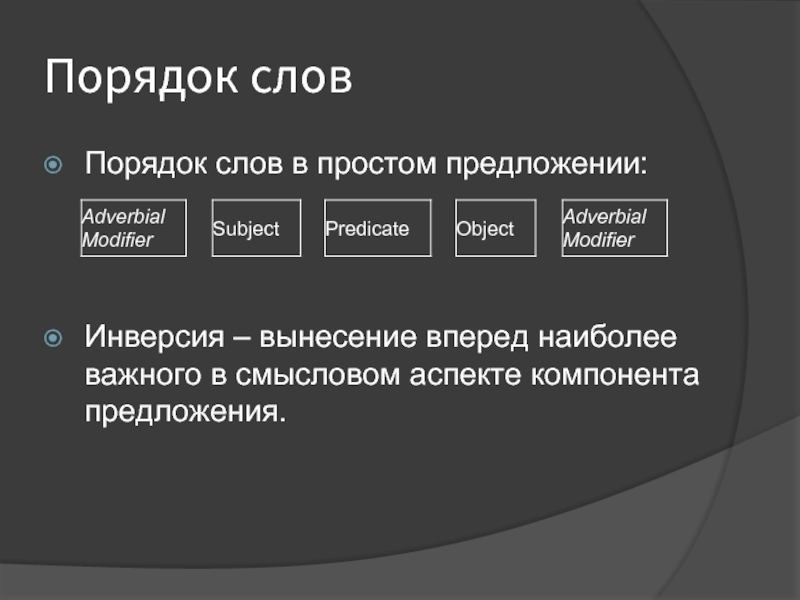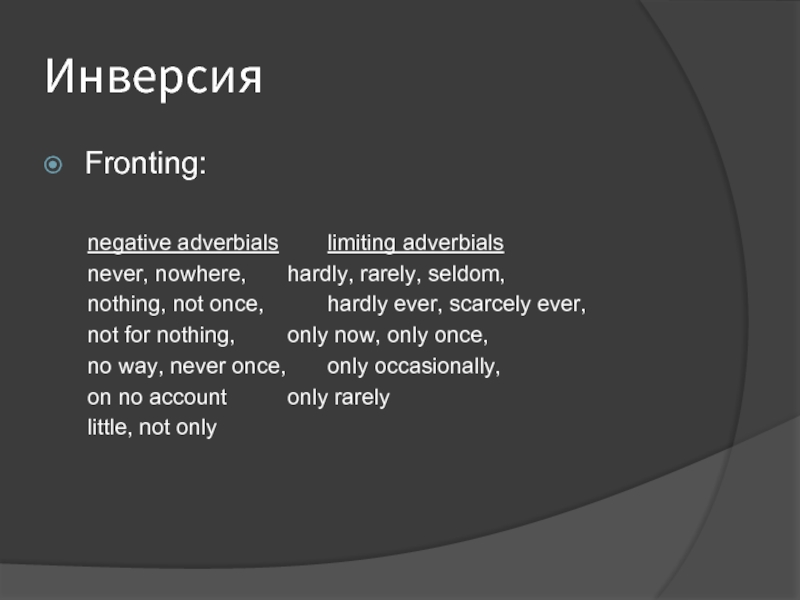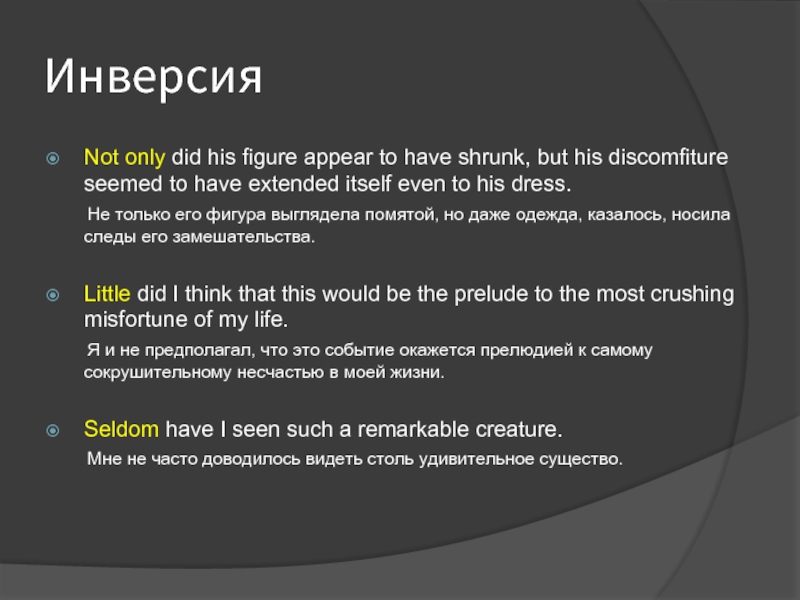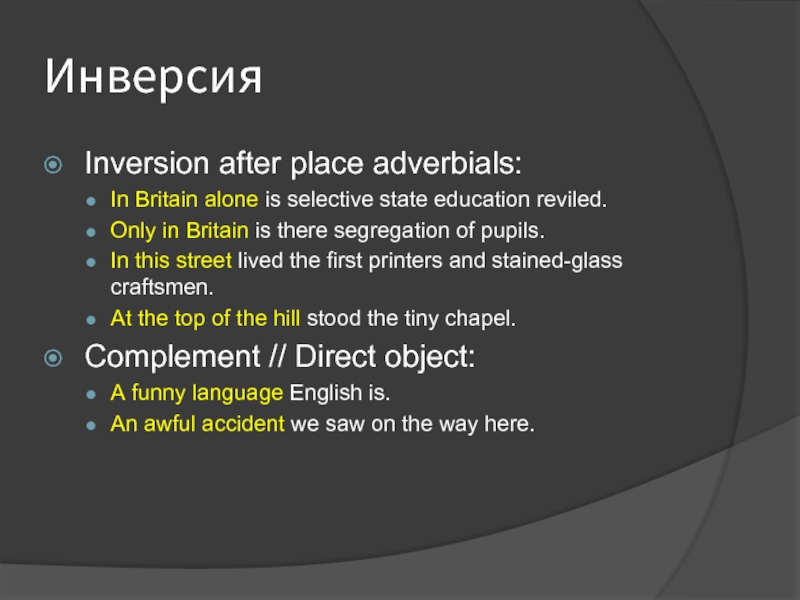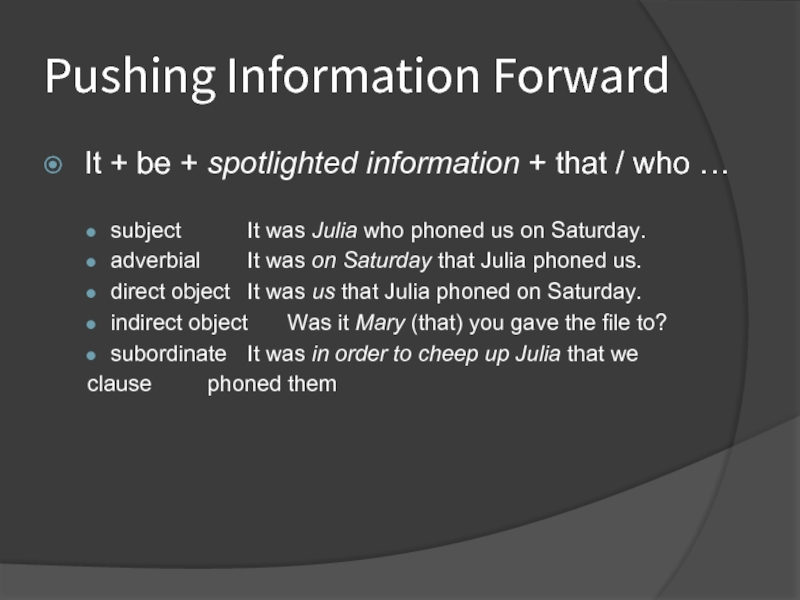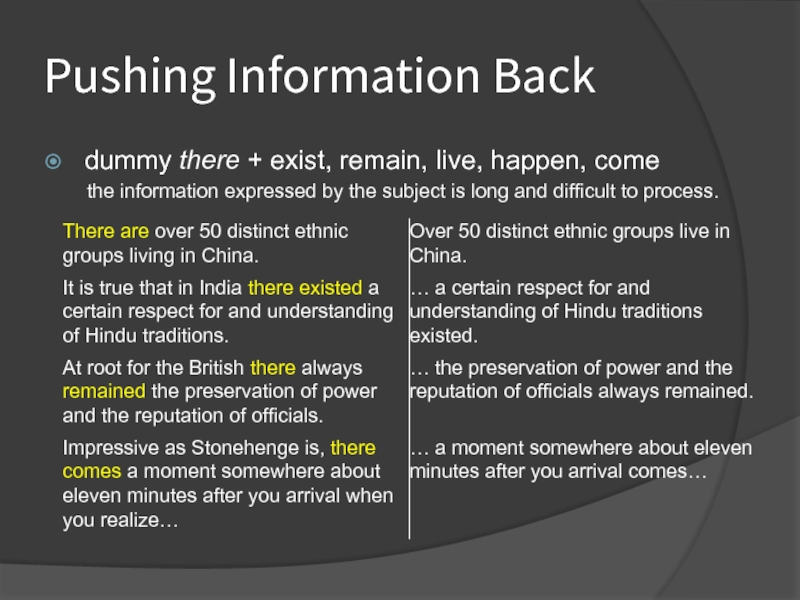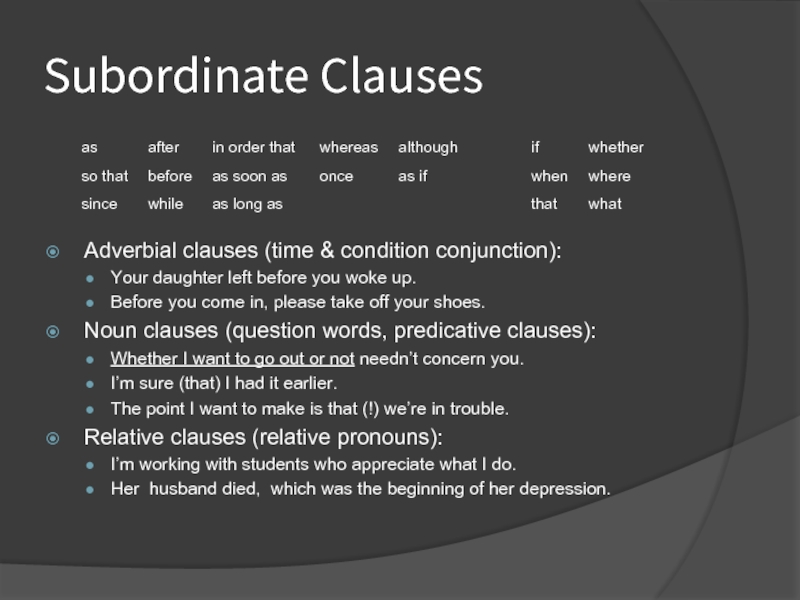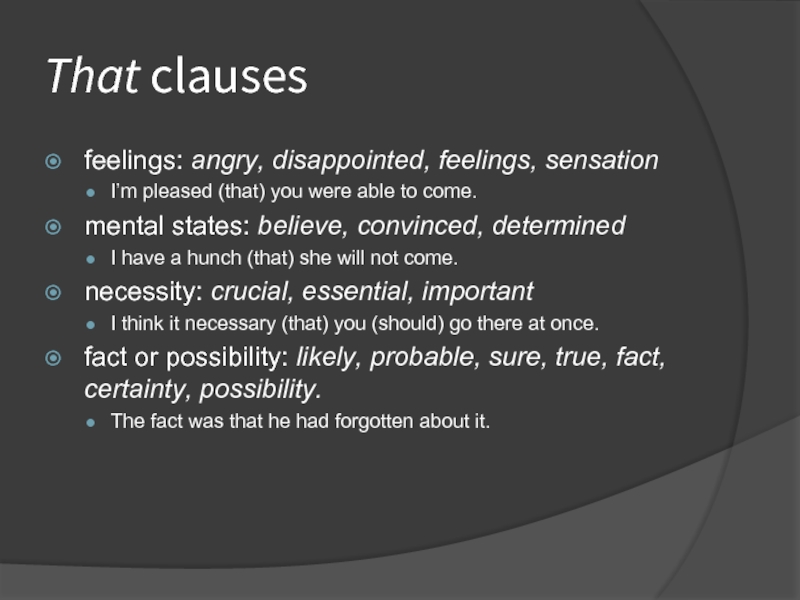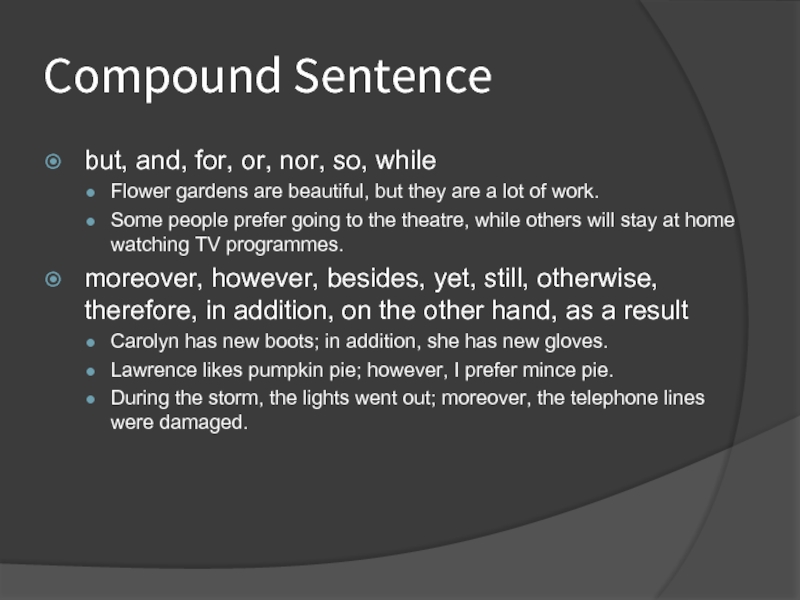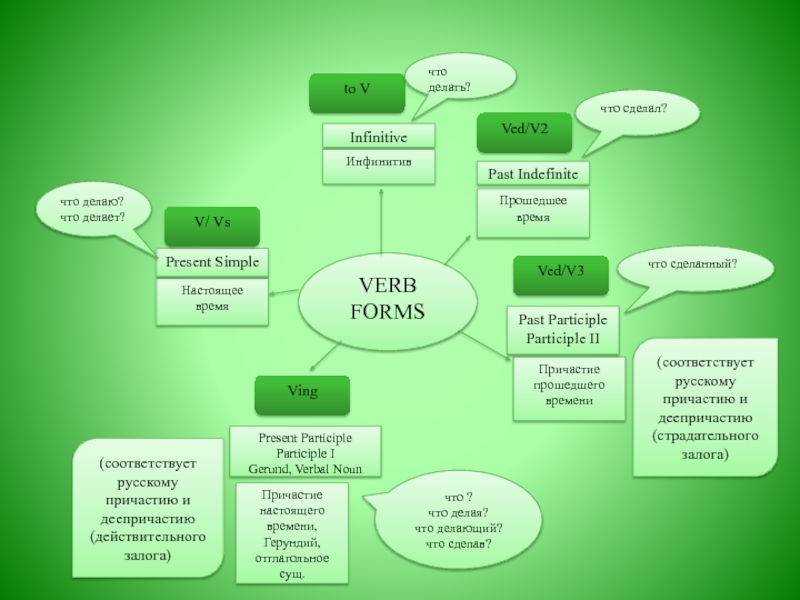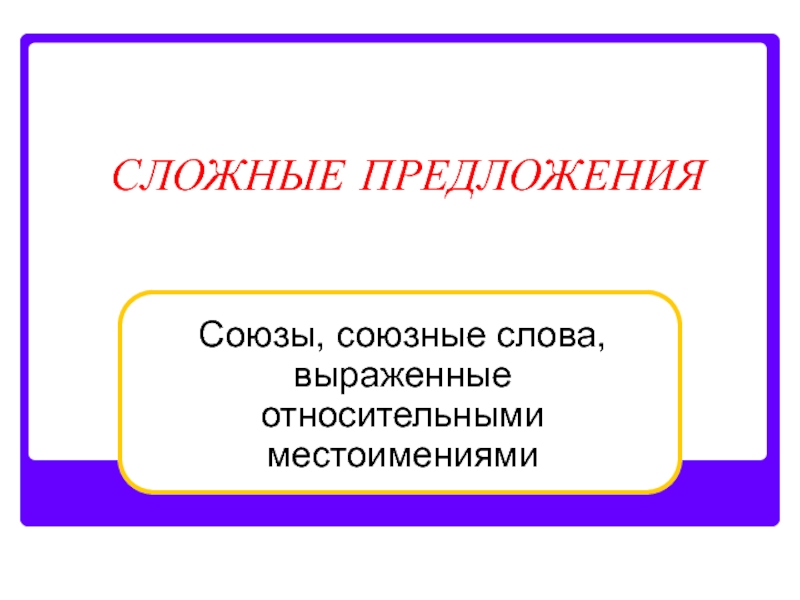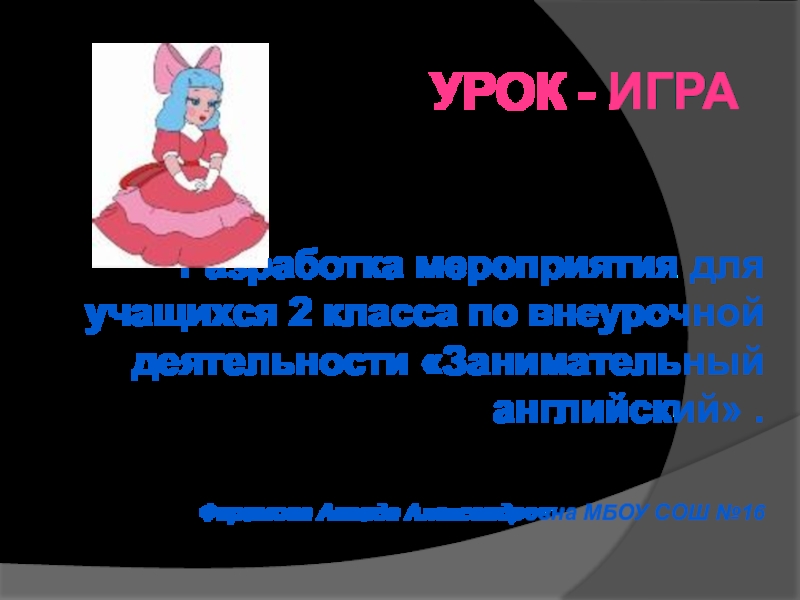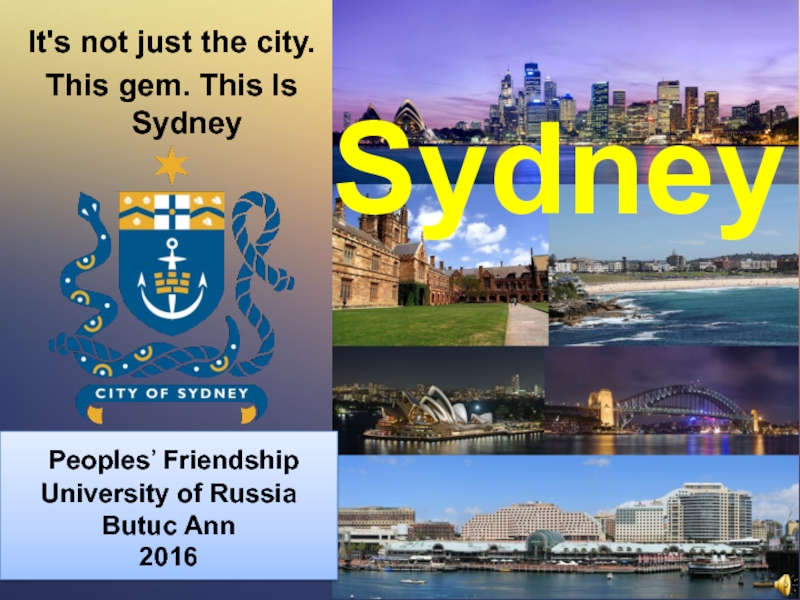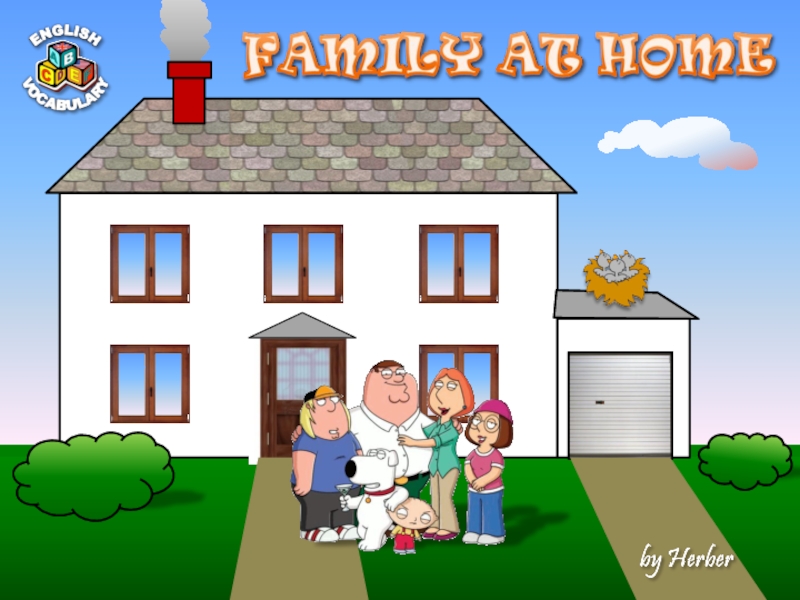- Главная
- Разное
- Дизайн
- Бизнес и предпринимательство
- Аналитика
- Образование
- Развлечения
- Красота и здоровье
- Финансы
- Государство
- Путешествия
- Спорт
- Недвижимость
- Армия
- Графика
- Культурология
- Еда и кулинария
- Лингвистика
- Английский язык
- Астрономия
- Алгебра
- Биология
- География
- Детские презентации
- Информатика
- История
- Литература
- Маркетинг
- Математика
- Медицина
- Менеджмент
- Музыка
- МХК
- Немецкий язык
- ОБЖ
- Обществознание
- Окружающий мир
- Педагогика
- Русский язык
- Технология
- Физика
- Философия
- Химия
- Шаблоны, картинки для презентаций
- Экология
- Экономика
- Юриспруденция
Порядок слов в предложении. (Лекция 14) презентация
Содержание
- 1. Порядок слов в предложении. (Лекция 14)
- 2. Порядок слов Порядок слов в простом предложении:
- 3. Инверсия Fronting: negative adverbials limiting adverbials
- 4. Инверсия Not only did his figure appear
- 5. Инверсия Inversion after place adverbials: In Britain
- 6. Pushing Information Forward It + be +
- 7. Pushing Information Back dummy there +
- 8. Subordinate Clauses Adverbial clauses
- 9. That clauses feelings: angry, disappointed, feelings, sensation
- 10. Compound Sentence but, and, for, or, nor,
Слайд 2Порядок слов
Порядок слов в простом предложении:
Инверсия – вынесение вперед наиболее важного
в смысловом аспекте компонента предложения.
Слайд 3Инверсия
Fronting:
negative adverbials limiting adverbials
never, nowhere, hardly, rarely, seldom,
nothing, not once, hardly ever, scarcely
ever,
not for nothing, only now, only once,
no way, never once, only occasionally,
on no account only rarely
little, not only
not for nothing, only now, only once,
no way, never once, only occasionally,
on no account only rarely
little, not only
Слайд 4Инверсия
Not only did his figure appear to have shrunk, but his
discomfiture seemed to have extended itself even to his dress.
Не только его фигура выглядела помятой, но даже одежда, казалось, носила следы его замешательства.
Little did I think that this would be the prelude to the most crushing misfortune of my life.
Я и не предполагал, что это событие окажется прелюдией к самому сокрушительному несчастью в моей жизни.
Seldom have I seen such a remarkable creature.
Мне не часто доводилось видеть столь удивительное существо.
Не только его фигура выглядела помятой, но даже одежда, казалось, носила следы его замешательства.
Little did I think that this would be the prelude to the most crushing misfortune of my life.
Я и не предполагал, что это событие окажется прелюдией к самому сокрушительному несчастью в моей жизни.
Seldom have I seen such a remarkable creature.
Мне не часто доводилось видеть столь удивительное существо.
Слайд 5Инверсия
Inversion after place adverbials:
In Britain alone is selective state education reviled.
Only in Britain is there segregation of pupils.
In this street lived the first printers and stained-glass craftsmen.
At the top of the hill stood the tiny chapel.
Complement // Direct object:
A funny language English is.
An awful accident we saw on the way here.
Слайд 6Pushing Information Forward
It + be + spotlighted information + that /
who …
subject It was Julia who phoned us on Saturday.
adverbial It was on Saturday that Julia phoned us.
direct object It was us that Julia phoned on Saturday.
indirect object Was it Mary (that) you gave the file to?
subordinate It was in order to cheep up Julia that we
clause phoned them
subject It was Julia who phoned us on Saturday.
adverbial It was on Saturday that Julia phoned us.
direct object It was us that Julia phoned on Saturday.
indirect object Was it Mary (that) you gave the file to?
subordinate It was in order to cheep up Julia that we
clause phoned them
Слайд 7Pushing Information Back
dummy there + exist, remain, live, happen, come
the
information expressed by the subject is long and difficult to process.
Слайд 8Subordinate Clauses
Adverbial clauses (time & condition conjunction):
Your daughter left before you
woke up.
Before you come in, please take off your shoes.
Noun clauses (question words, predicative clauses):
Whether I want to go out or not needn’t concern you.
I’m sure (that) I had it earlier.
The point I want to make is that (!) we’re in trouble.
Relative clauses (relative pronouns):
I’m working with students who appreciate what I do.
Her husband died, which was the beginning of her depression.
Before you come in, please take off your shoes.
Noun clauses (question words, predicative clauses):
Whether I want to go out or not needn’t concern you.
I’m sure (that) I had it earlier.
The point I want to make is that (!) we’re in trouble.
Relative clauses (relative pronouns):
I’m working with students who appreciate what I do.
Her husband died, which was the beginning of her depression.
Слайд 9That clauses
feelings: angry, disappointed, feelings, sensation
I’m pleased (that) you were able
to come.
mental states: believe, convinced, determined
I have a hunch (that) she will not come.
necessity: crucial, essential, important
I think it necessary (that) you (should) go there at once.
fact or possibility: likely, probable, sure, true, fact, certainty, possibility.
The fact was that he had forgotten about it.
mental states: believe, convinced, determined
I have a hunch (that) she will not come.
necessity: crucial, essential, important
I think it necessary (that) you (should) go there at once.
fact or possibility: likely, probable, sure, true, fact, certainty, possibility.
The fact was that he had forgotten about it.
Слайд 10Compound Sentence
but, and, for, or, nor, so, while
Flower gardens are beautiful,
but they are a lot of work.
Some people prefer going to the theatre, while others will stay at home watching TV programmes.
moreover, however, besides, yet, still, otherwise, therefore, in addition, on the other hand, as a result
Carolyn has new boots; in addition, she has new gloves.
Lawrence likes pumpkin pie; however, I prefer mince pie.
During the storm, the lights went out; moreover, the telephone lines were damaged.
Some people prefer going to the theatre, while others will stay at home watching TV programmes.
moreover, however, besides, yet, still, otherwise, therefore, in addition, on the other hand, as a result
Carolyn has new boots; in addition, she has new gloves.
Lawrence likes pumpkin pie; however, I prefer mince pie.
During the storm, the lights went out; moreover, the telephone lines were damaged.
